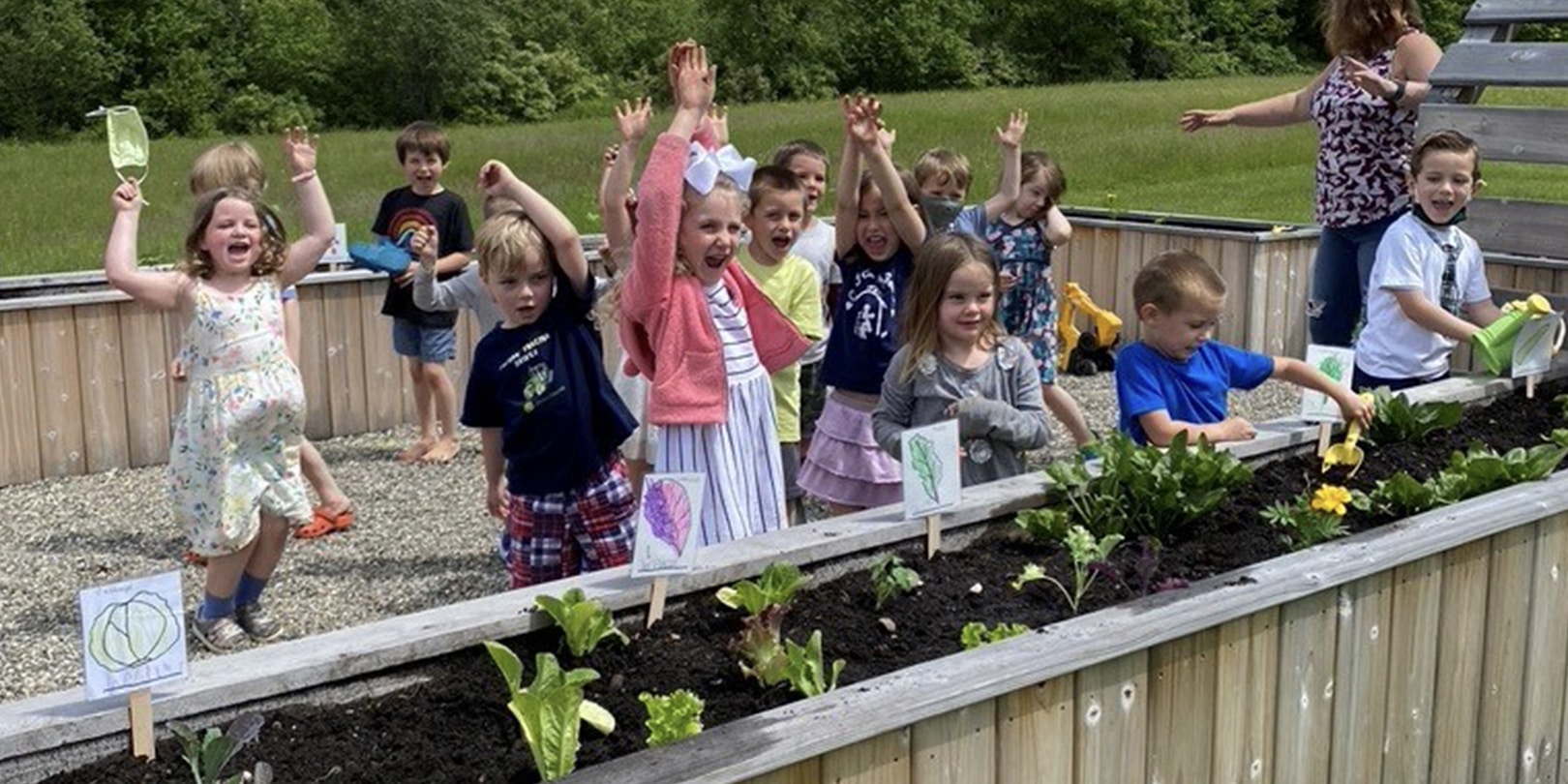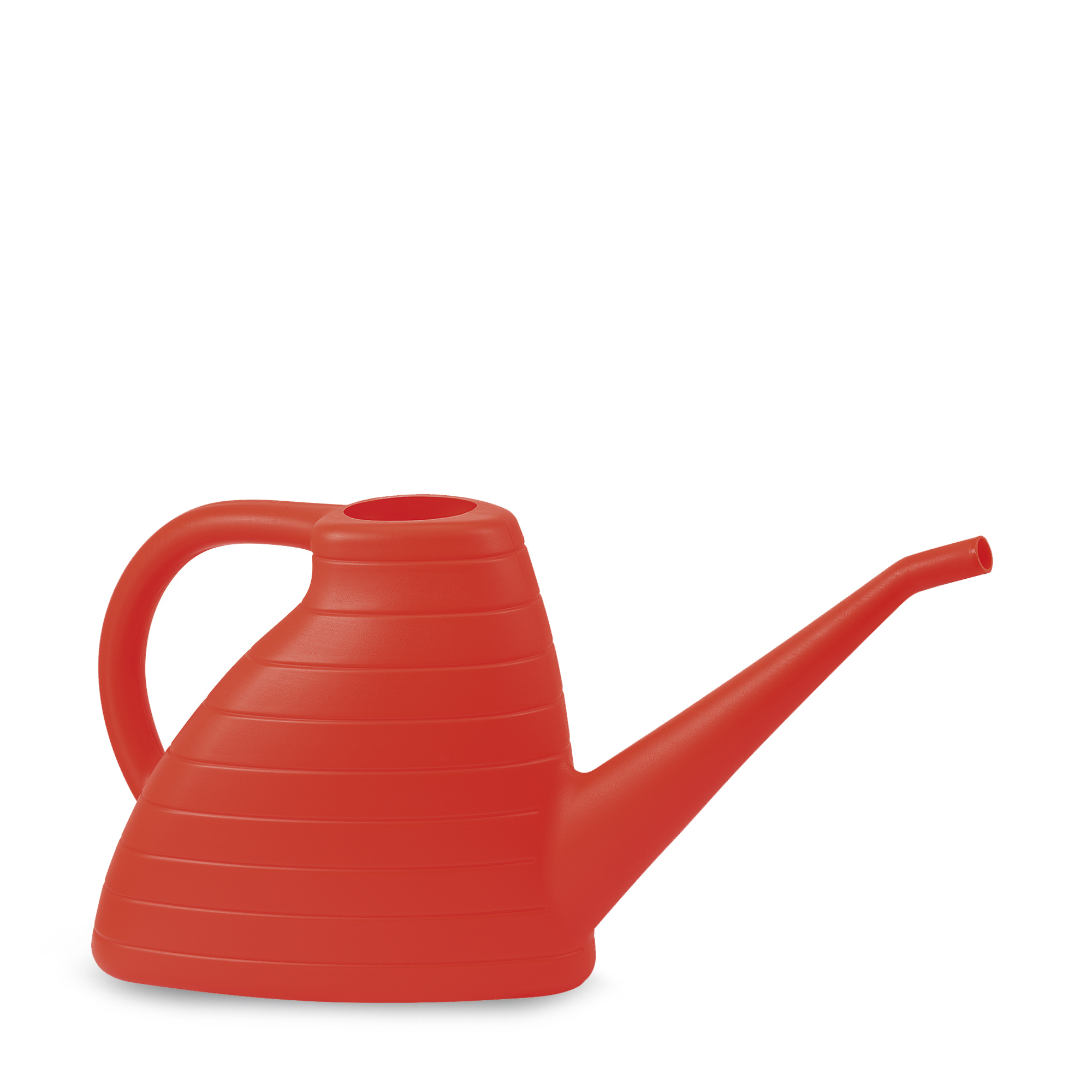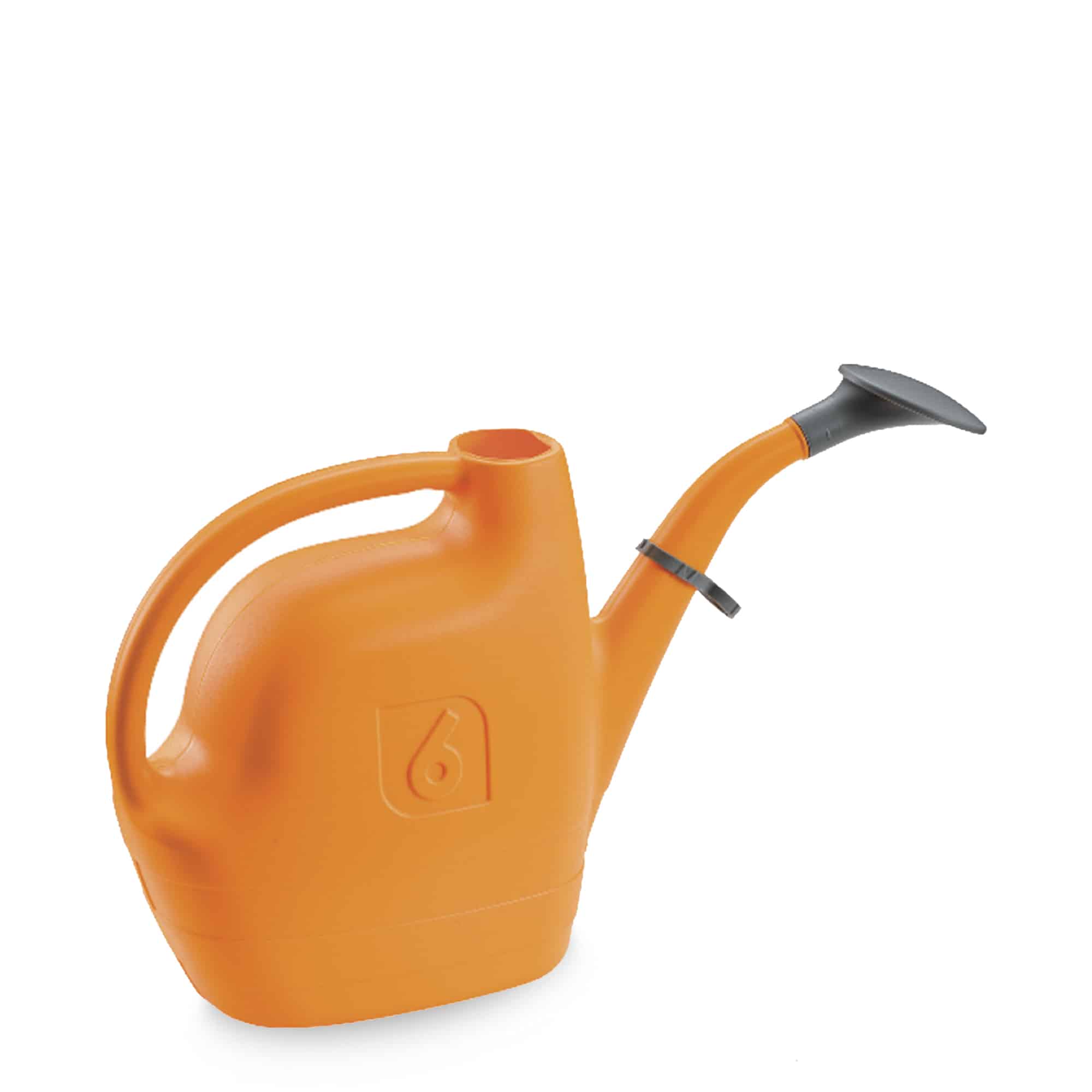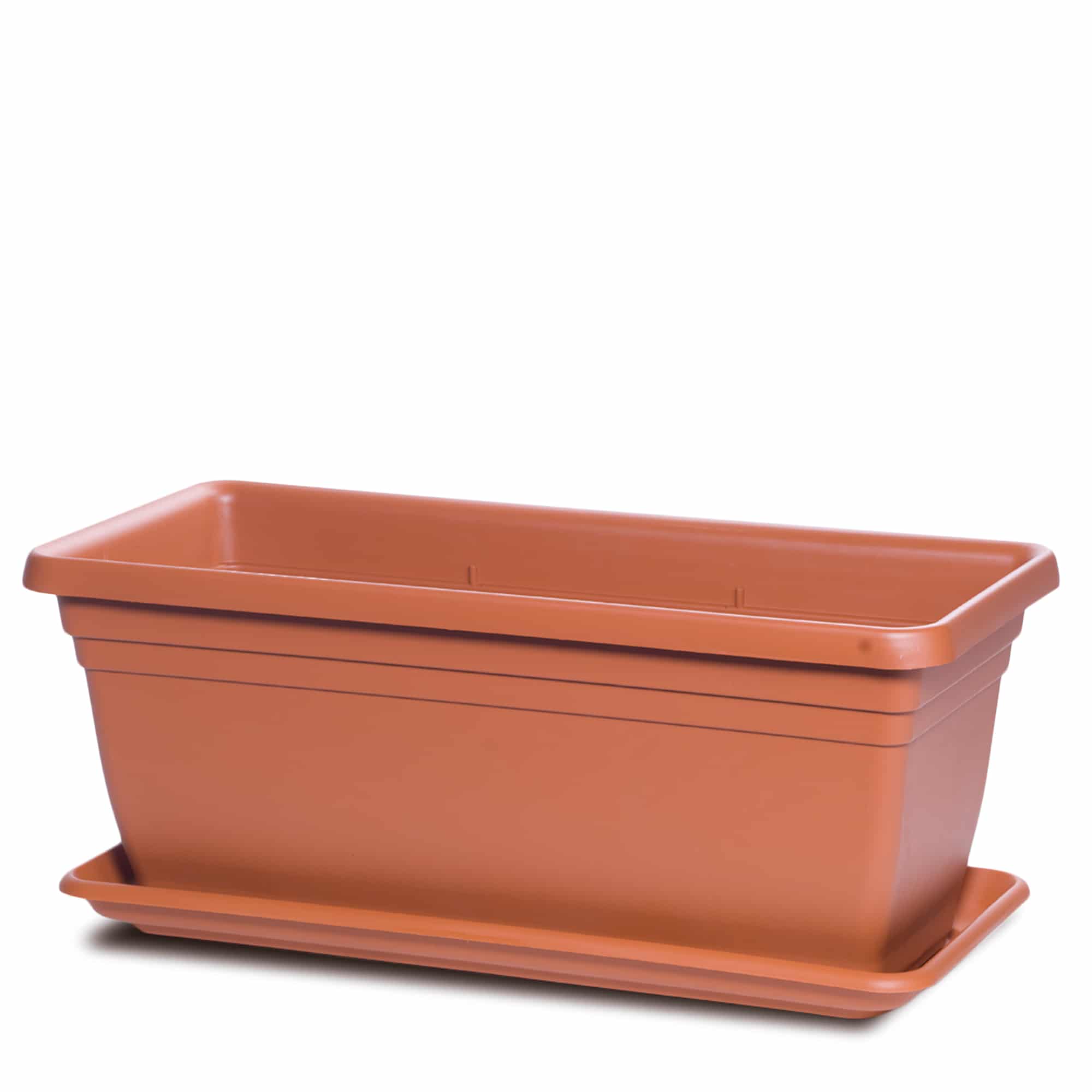Learn about the ways you can engage your kids in the garden to improve their motor skills with container gardening activities such as planting & watering.
While container gardening is the perfect hands-on activity for kids to learn about the environment and enjoy the outdoors, it can also be a fun way for kids to practice fine motor skills. Doing tasks that require small movements and coordination of the hands, fingers, and wrists exercise the small muscles and joints and help them learn to work together to complete a task — think picking up Cheerios from a tray or tying shoelaces. So many container garden tasks require a gentle, coordinated touch, such as planting seeds at the proper depth and picking berries without damaging nearby foliage. As a garden is constantly evolving, it’s an ideal place for keeping kids engaged in a diverse range of tasks that must be tended to over time.
When gardening with kids, it’s important to model the tasks at hand. Do each activity together and be sure to give them constructive feedback so that they can learn by doing and create positive associations with their time in the garden.
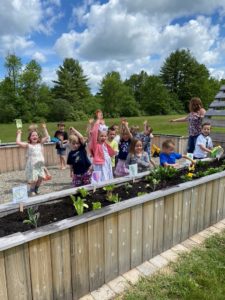
Here are 10 container garden activities and tips that can help kids develop fine motor skills:
1. Planting seeds
Start with large seeds, such as beans, peas, and sunflowers so young kids can easily pick them up one at a time. As kids gain confidence, they can progress to smaller seeds, such as beets and nasturtiums. Tomatoes and peppers are some of the smaller seeds that can easily be planted one at a time. (Tiny seeds, like lettuce and basil, are usually planted a pinch full at a time or sprinkled over the soil surface.)
Mark out your planting area with string or by laying sticks on the ground. Consult seed packets to determine the proper spacing between plants and calculate how many seeds you’ll need for your planting area. Also consult the seed packet for how deeply to plant the seeds.
Kids can use their fingers to make small holes in the soil. To estimate the distance between each hole, a hand “shaka” (this is the length from the tips of pinkie to thumb when a hand is stretched wide) or the length of a trowel’s blade can be used as examples to model creative ways to measure. Do a similar activity to indicate proper planting depth. A half-inch might equal the length from the tip of the index finger to the first knuckle.
When all of the holes are made, rather than trying to reach into a seed packet, pour the seeds into a small cup that kids can easily pick up individual seeds. Encourage them to be intentional about how many seeds they are planting in each hole. For most seeds, plant two per hole to ensure that at least one will grow. As an additional reminder ofwhat areas are planted, save the covering the holes as the last step after you see that each hole has been planted.
2. Transplanting
Working with seedlings requires kids to be gentle with delicate transplants so as to not damage the roots or plant itself. In most cases, the root ball can be pushed out through the bottom of the tray with a stick. If the rootball is stuck, scoot it out with a spoon. Sometimes you can loosen stubborn root balls by rolling or massaging the container garden to loosen the roots. Then, have kids gently hold the rootball in the cup of their hand, or for very sturdy plants, by the leaves. Never hold seedling by its stem — if the stem breaks, the seedling dies. (Leaves and roots, on the other hand, will usually regrow.)
If the soil is nice and loose (and hopefully it is, because that’s what plants like!) then kids can dig holes by hand or with a narrow transplanting trowel. Follow the same spacing guidelines as when you’re planting seeds. Making and spacing the holes first before planting is always a good idea. Always plant seedlings at the same depth as they were in their pot — in other words, don’t plant any of the stem. (The only common exception is tomatoes, which can be planted deeper.)
3. Digging with hand trowel
Hand trowels are great tools for digging holes for larger transplants, adding compost to soil, or placing mulch around a plant’s base. If kids will be digging holes, remind them to make a neat pile of soil right next to the hole so that they can use it to backfill around the plant afterwards. If they are transferring matter from one place to another, encourage them to hold the trowels steady and make sure the valuable nutrients can make it to the plant! You can even make it a game to try not to spill any soil.
4. Tilling the soil with a hand rake
Cultivators are great tools to develop good grip while leveling soil, mixing in compost, or prepping a bed for planting. Remind kids that soil is filled with living organisms and should be treated with care and respect. Have them gently sift through the soil with their hands to look for worms, sowbugs, and other evidence of soil life.
5. Harvesting
From plucking tomatoes off the vine to pulling a carrot out of the ground, harvesting is no doubt the most rewarding gardening task! It is also a great way to teach kids that each plant requires a different technique for harvesting and can allow them to continuously practice.
6. Pruning
Picking the yellowing or dead leaves off of plants not only encourages kids to train their eyes for responding to plant needs, but it can also help them incorporate different movements into one action such as pinching, twisting, and pulling.
7. Weeding
Kids can practice their plant identification skills while weeding and removing unwanted plants from the garden. They can use hand tools like a weed extractor or simply use kid-sized gloves to efficiently pull out weeds.
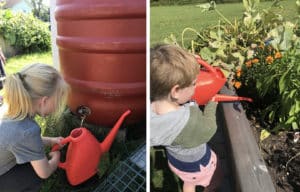
8. Watering
Make sure not to over-fill each watering can and to use an appropriate size for your child’s age. Having a watering can or sprayer for each child that you will be working with will help keep down waiting time while filling them up at the hose and therefore focused on the activity. If possible, water at the base of the plant, ideally when it’s cloudy or the sun is low to minimize evaporation.
9. Saving seeds
First, work with kids to collect all the dried pods you want to collect by hand or with safety scissors. Then, go to a “seed saving station” that has containers for placing the dried seeds, “bad” seeds, and plant material to be composted. Leave the seeds to fully dry out for a day and then store them in an airtight container labeled with the plant name and date. Check out this KidsGardening resource on Saving Seeds.
10. Making plant labels
Getting kids involved in creating labels for your plants by either writing or painting them is another fun way to channel both their creativity and fine motor skills.
The key to developing fine motor skills is practice and repetition, so as your garden grows, your child’s “green thumbs” will as well! Building your child’s confidence to take on container gardening tasks by themselves will help them cultivate a sense of ownership and responsibility and ultimately inspire them to get their hands in the dirt throughout each season.
